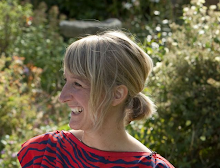
Monday, 8 December 2008
Anjuna market, Goa

Sunday, 7 December 2008
Purple Valley

Sunday, 23 November 2008
Pleasure seekers
The four hour train ride from Ratnagiri (see below) to Goa was fun for two reasons: fresh, piping hot samosas, the likes of which I've never eaten, bought to your seat from the adjacent Pantry Car (I've been to enough parties with canapes to know to loiter near the kitchens), costing 12 rupees each. And second, because of Vikram.
He is a navy officer, currently based in Goa, 27, twinkly eyes, a gorgeous smile and - something I hadn't realised I'd been missing here in India - a cracking sense of humour.
He was very curious about us. He asked: 'What is the purpose of your visit to India?' And Angela, who I was still travelling with, muttered something about wanting to see more of the country, learn about its people. He smiled beautifully, and looked utterly dissatisfied with the answer. 'But what is the specific purpose of your visit?' It was then I realised that visiting a country just because you want to is an alien concept to Indian people. Vikram said we were very lucky, being able to leave our jobs/take time out of our jobs for reasons of pleasure. 'Indian people cannot do that,' he said. 'We have too much responsibility.' To their jobs, to their family, where a child, often a son, will be the bread winner for the entire lot.
It reminded me of a news story I'd read in the Times of India the day before. There is currently a bill lodged in Parliament here on whether or not to legalise homosexuality. An outspoken opponent of this, an MP, put his case forward: as well as saying how immoral it was, he said it was another threat to Indian culture from Western society, 'which is just about fun and pleasure'.
Ratnagiri

Saturday, 15 November 2008
Hampi ghats



